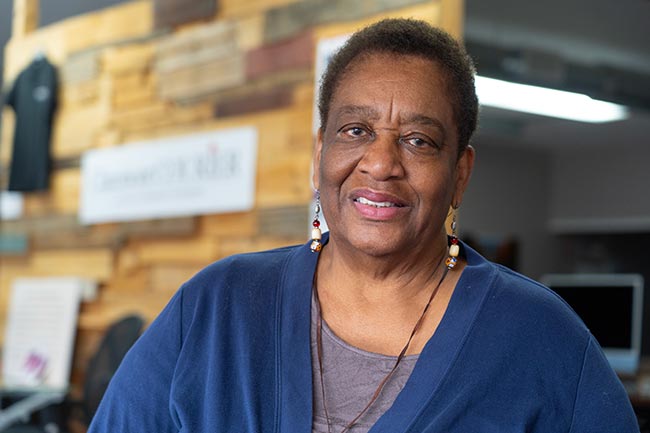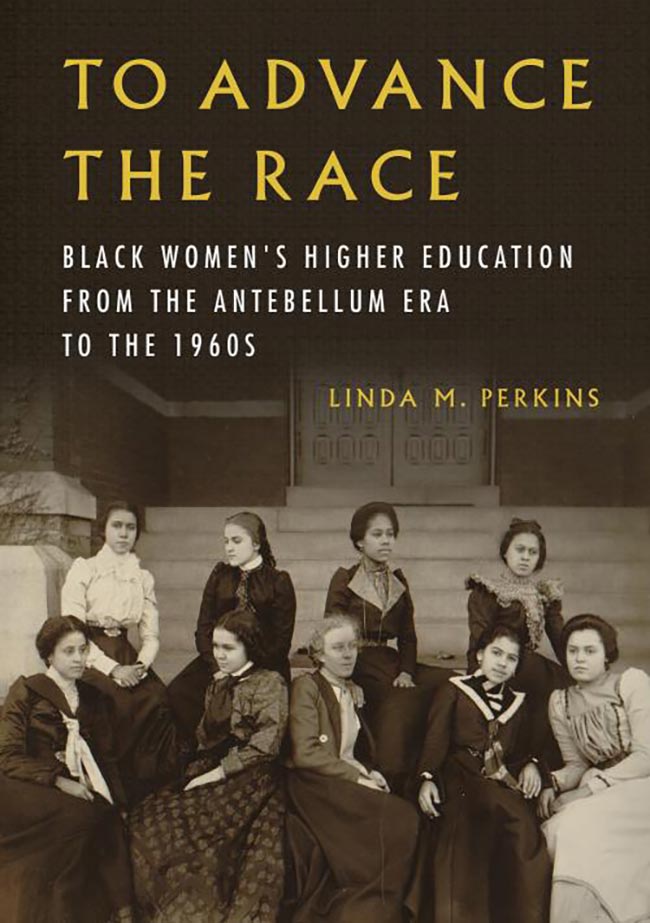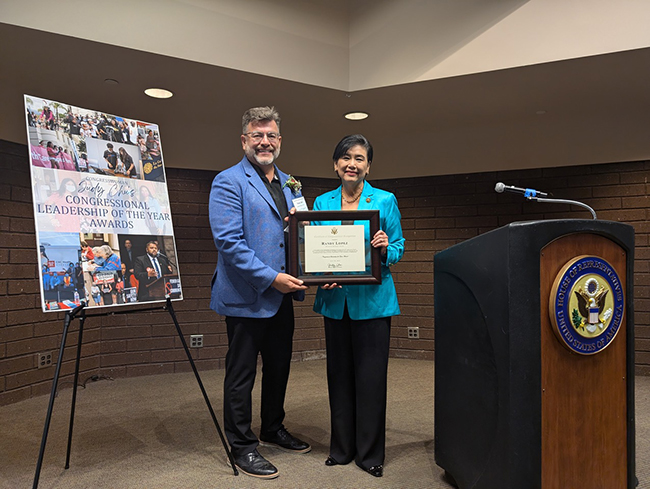New book chronicles Black women in higher education

Linda Perkins, professor and director of applied gender studies at Claremont Graduate University and author of “To Advance the Race: Black Women's Higher Education from the Antebellum Era to the 1960s.” Courier photo/Andrew Alonzo
By Andrew Alonzo | aalonzo@claremont-courier.com
Growing up in Mobile, Alabama, 73-year-old Linda Perkins attended segregated schools and overcame various harsh challenges, all in the pursuit of knowledge.
“We always got the leftover books from white people. You know, they were like 50 years old,” Perkins said. “That was the reality of Black people down there. But in spite of all that, Black people helped each other.”
Now Perkins’ new book, “To Advance the Race: Black Women’s Higher Education from the Antebellum Era to the 1960s,” published by University of Illinois Press, offers insight into how Black women blazed a trail into higher education, and how their success impacted their communities.
“Black people have always been interested in education,” Perkins said. “Even in slavery, you know, the slaves would sneak out to learn [from] whoever knew the alphabet.”
Perkins, along with being an author, is a university professor and director of applied gender studies at Claremont Graduate University.

Linda Perkins’ “To Advance the Race: Black Women’s Higher Education from the Antebellum Era to the 1960s,” comes out April 9. Image/courtesy of University of Illinois Press
In one section of “To Advance the Race,” she turns her lens to Oberlin, Ohio, a stop in the Underground Railroad, and home to Oberlin College, the first in America to admit Black students and the first to grant bachelor’s degrees to women. Perkins also explores challenges Black women faced in higher education across the nation.
“These people went through a whole lot of hardships to get these degrees and graduated at the top of their class,” Perkins said. “I mean they had such resilience and such determination. It’s just kind of amazing what they were able to do in spite of all of the difficulties that were placed in front of them. It just gave them more determination to prove they could it and they did it.”
Perkins also sheds light on the first Black women to attend graduate school, and the changes that accompanied Black women as they became educated leaders in their communities, among many other topics.
“The book is really comprehensive because it looks at Black women’s higher education at large,” Perkins said. “So its them as students, then I look at them as graduate students, then I look at Black women as professoriat, the early history of Black women in the professorial, and then I look at the challenges that they had, primarily about gender. The race [aspect] was always there, but ironically, a lot of these women did well in spite of race.”
Referencing the book’s title, Perkins added “these women were doing all of these things to help the race. Blacks were taught that you have to uplift the race; if you have an advantage, you need to help somebody else and you know you’re duty bound, really.”
Perkins noted Black educational opportunities in the South were primarily through churches, which differed from Midwest and northern offerings that provided them through predominately white schools. “The educational opportunities were very, very different,” she said. “And even when [Black] public schools did exist later, you know they were subpar in terms of how they were starved financially.”
Perkins first drew inspiration for the book while completing her dissertation in 1978, while at
University of Illinois Urbana-Champaign. She wrote about Fanny Jackson Coppin, the first Black woman to graduate from Oberlin College, in 1865.
The goal of “To Advance the Race: Black Women’s Higher Education from the Antebellum Era to the 1960s” is “to show what these Black women’s histories have been, and particularly as it relates to what they’ve gone through and what they’ve accomplished in these various institutions at every level,” she said. “I’m very proud of it because it just gives me an opportunity to give these women voice.”
Perkins hopes the book’s appeal goes beyond academics and history buffs. “I hope people will read it and really get a totally different view of the role and the contributions of Black women in higher education,” she said. “It’s not just one story. They had lot of different kinds of experiences depending on where they went to school.”
“To Advance the Race: Black Women’s Higher Education from the Antebellum Era to the 1960s” comes out April 9 at press.uillinois.edu/books. CGU hosts a free and public book launch event at 5:15 p.m. Monday, April 22 with the author at Albrecht Auditorium, 925 N. Dartmouth Ave., Claremont. RSVP at forms.office.com/r/XaxuxQns6Z.









0 Comments